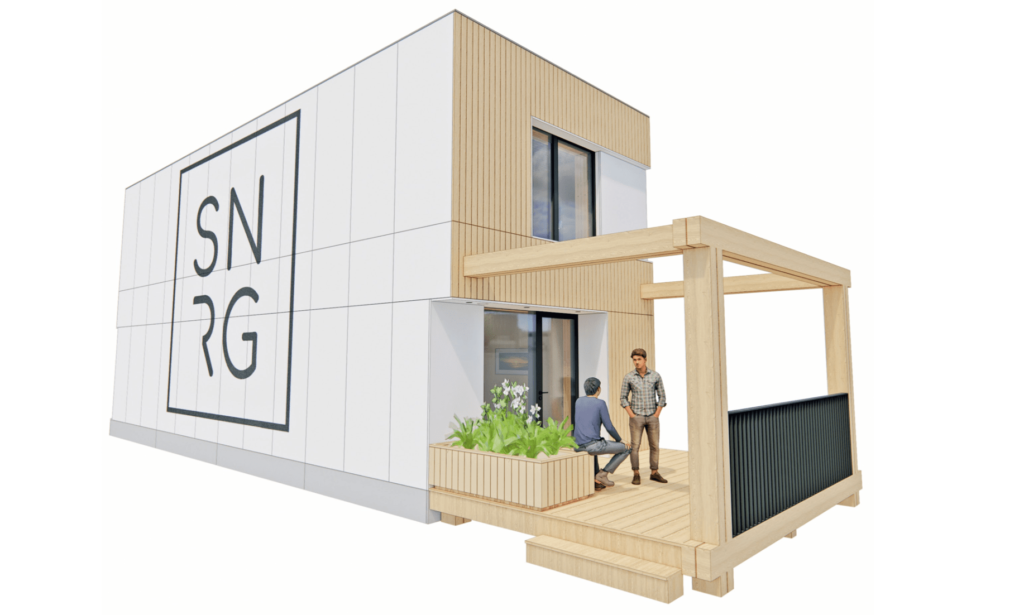News - Construction News
Homegrown Timber Initiative Secures Funding

A team of experts who have been exploring the mainstream use of homegrown timber within the construction sector has secured funding to help with the next phase of a demonstrator project which will see the first two-storey modular home manufactured from Scottish mass timber displayed during COP26.
The Transforming Timber Initiative, which is being led by Construction Scotland Innovation Centre (CSIC) along with support from Edinburgh Napier University, ECOSystems Technologies, the University of Edinburgh and SNGR, has been awarded £1.45 million in funding from Innovate UK’s Small Business Research Initiative (SBRI) to help create a fully functional prototype which highlights the business case for using Scottish timber resources in future building projects.
Sam Hart, Innovation Manager at CSIC, said: “There is a huge opportunity for the greater use of renewable Scottish timber in UK construction and research has proven that with the right treatment and processing, it can be used for a wide range of structural elements.
“The construction of a functioning prototype will allow us to take this research one step further, showcasing the strength of the opportunity and the associated environmental benefits, while enabling us to monitor and test the performance and behaviour of the building in a real-world environment, outside of the factory.”
The commercialisation of homegrown timber could prove a major boost for the Scottish economy, while also making a significant impact on the environmental footprint of construction. A recent study estimated that over the next 30 years, substituting concrete floor slabs with timber in steel building frames could avoid up to 50 megatons of upfront greenhouse gasses or carbon dioxide equivalent.
The two-storey, two-bedroom timber demonstrator home will feature as part of the After the Pandemic showcase which is set to take shape on the banks of the River Clyde – close to the main COP26 venues – and will be displayed throughout the month of November.
In addition to the modular prototype, the project includes the creation of the UK’s first dedicated homegrown timber resource library, showcasing best practice, training resources and technical guidance for the future use of sustainable timber products across the entire sector. The team will also produce a virtual reality walk-through and digital twin of the demonstrator unit to capture essential information such as structural, thermal, acoustic and fire performance data.
Following a successful feasibility study, the project will also look at the overall commercialisation strategy for homegrown timber including areas such as intellectual property, supply chain resilience, and how to measure and monitor demand.
Professor Robert Hairstans, head of the Centre for Offsite Construction and Innovative Structures at Edinburgh Napier University, commented: “Biogenic offsite manufacturing is an industrialised form of construction that utilises naturally renewable resources with an emphasis on timber, factory and digital approaches. This project will help accelerate the adoption of these approaches, supporting the utilisation of homegrown timber in line with the declared climate crisis and corresponding necessity to achieve net zero carbon adopting a circular approach.”
If you would like to read more stories like this, then please click here
Related Articles
More News
- UK Introduces New Trade Measures to Support Steel Sector
11 Jul 25
Steel producers across the UK will benefit from stronger trade measures from 1 July.
- Clean energy future to be ‘built in Britain’
10 Jul 25
The Clean Energy Industries Sector Plan comes into force to ‘build it in Britain’.
- Thousands more to get the tools they need to start construction careers
9 Jul 25
Thousands of people are set to benefit from on-the-job training and career opportunities in the






